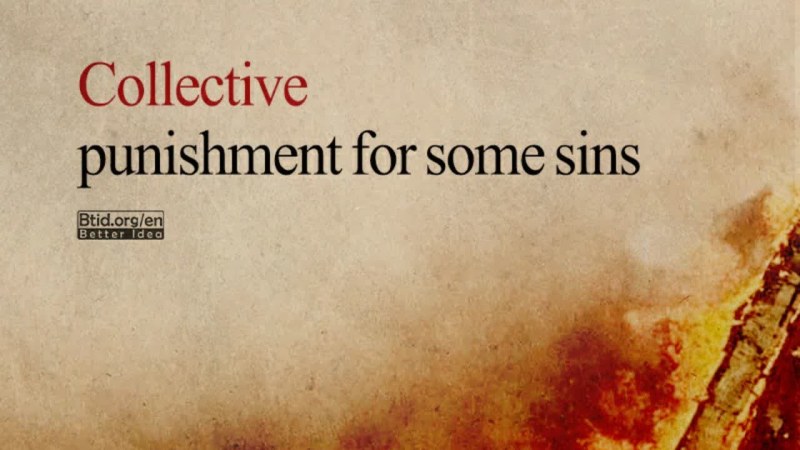-From the point of view of Islam, calamities and troubles have different causes; including: testing, flourishing, evolution, strengthening faith, warning, discipline, reward and punishment, etc. there are many verses and narrations related to each of them. But in this article, one of the most important causes of calamities, that is, sin, has been discussed.

Enjoining good and to forbid wrong, Principles of the obligation
Islam considers human actions as an important factor for accidents and emphasizes it. As the Qur'an says: "Any calamity that befalls you is because of the deeds you have done, and He forgives many."[1]
The Holy Prophet (PBUH) said: “A sinner among people is like a person who goes on a ship with a crowd and when he is in the middle of the sea, he takes an ax and starts to make a hole in the position where he is sitting, and whenever he is objected,, he says in response: I will take my share. If others don't stop him from this dangerous act, it won't be long before the sea water penetrates into the ship, all of them will drown in the sea at once.”[2]
The collective punishment of some sins (not forbid den) in the Qur'an:
The Holy Qur'an informs about the collective punishment of some societies, where a group of them rebelled and the other group did not command them to do good and forbid them from evil. And all of them were caught in divine punishment. The Qur'an says in Surah Ma'idah: " Those of the Children of Israel who went astray were cursed by the tongue of David, and of Jesus, son of Mary. That was because they rebelled and used to transgress. They used not to forbid each other the hateful things (which) they did; certainly evil was that which they did."[3]
In the story of "The Companions of the Sabbath", the Qur'an divides the people of Israel into three groups: one group is mostly law breakers, the other group is a small minority of caring and giving advice, and the third group is the indifferent group. The indifferent ones used to say to the advisers and the commanders of good and evil: Leave them alone and don't tire yourself for no reason, because your words have no effect on their hearts anyway, they are hellish. "Why do you teach a group (sinners) that Allah will destroy them in the end?"[4]
Qura says in continuation: “When they disregarded the warnings that had been given them, We rescued those who forbade Evil; but We visited the wrong-doers with a grievous punishment because they were given to transgression.”[5]
References:
[1] Quran [42–30] وَمَا أَصَابَكُمْ مِنْ مُصِيبَةٍ فَبِمَا كَسَبَتْ أَيْدِيكُمْ وَيَعْفُو عَنْ كَثِيرٍ
[2] Wasayel al-Shia, V. 11, P. 520
[3] Quran [5–78,79] لُعِنَ الَّذِينَ كَفَرُوا مِنْ بَنِي إِسْرَائِيلَ عَلَىٰ لِسَانِ دَاوُودَ وَعِيسَى ابْنِ مَرْيَمَ ۚ ذَٰلِكَ بِمَا عَصَوْا وَكَانُوا يَعْتَدُونَ
كَانُوا لَا يَتَنَاهَوْنَ عَنْ مُنْكَرٍ فَعَلُوهُ ۚ لَبِئْسَ مَا كَانُوا يَفْعَلُونَ
[4] Quan [7–164]... وَإِذْ قَالَتْ أُمَّةٌ مِنْهُمْ لِمَ تَعِظُونَ قَوْمًا ۙ اللَّهُ مُهْلِكُهُمْ أَوْ مُعَذِّبُهُمْ عَذَابًا شَدِيدًا
[5] Quan [7–165] فَلَمَّا نَسُوا مَا ذُكِّرُوا بِهِ أَنْجَيْنَا الَّذِينَ يَنْهَوْنَ عَنِ السُّوءِ وَأَخَذْنَا الَّذِينَ ظَلَمُوا بِعَذَابٍ بَئِيسٍ بِمَا كَانُوا يَفْسُقُونَ



